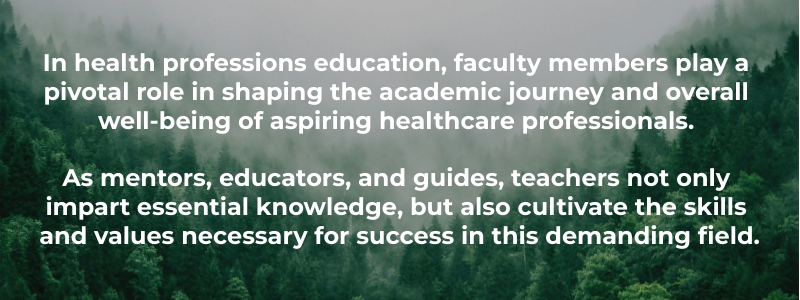Optimizing the Learning Environment
Discover tools and materials to support your efforts in optimizing the learning environment. The resources apply to teaching both students and residents, unless a particular audience is specified.

Learning Environment Resources
If you are unsure of where to start, the following Inclusivity in the Learning Environment online module is an appropriate place to begin, and can record your engagement with an optional completion email.
The Inclusivity in the Learning Environment online modules provide an introduction to concepts of inclusion and microaggressions, guidance on how to address non-inclusive actions using the ACTION framework, and outlines inclusive environment expectations as per the Faculty of Medicine. The modules promote collaborative discussions and/or self- reflection that results in collective learning about inclusive practices. There are seperate modules for both the medical and health professions contexts. Though intended for faculty use, the online modules can also be taken by staff, students, and residents.
Inclusivity in the Learning Environment for Health Professions (Online Module)
The Inclusivity in the Learning Environment for Medical Faculty (Online Module) There is also a PowerPoint version intended for group facilitation and is CME accredited for group learning credits.
The Inclusive Language Guide (PDF): Developed by the Office of Faculty Development & Educational Support, and the Office of Respectful environments, Equity, Diversity & Inclusion (REDI) to support those teaching in lecture, small group, and clinical settings. Refer to guide’s inclusive language principles as you prepare to deliver materials and facilitate student and resident learning in Health Professions education. The guide focuses on key areas where language could be more inclusive, and was developed through consultation with academic leadership, faculty, and students.
Learning Environment Modules (Online Module Series): These resources address learning environment related topics when teaching residents in Postgraduate Medical Education. They are scenario-driven and provide questions to facilitate productive conversations. PowerPoint presentation versions (CME accredited for group learning credits) and Blended Discussion Primers for group facilitation and discussion also available upon request by emailing fac.dev@ubc.ca
Topics include: Gender Bias in the Learning Environment, Resident & Nurses: Communication and Collaboration, From Learner to Practitioner: Managing the Transition and Thriving in Residency and Beyond.
Clinical Teaching Mini-Modules (Online Module Series): The four modules cover the interrelated concepts of co-creating goals, doing direct observation and giving feedback, engaging in collaborative questioning to probe clinical reasoning, and reflecting on the experience to offer guidance for self-directed learning. Each module contains scenarios that address teaching both medical students and residents.
Land Acknowledgement Resource (Presentation Slide)– Doing a land/territory acknowledgement helps insert an awareness of Indigenous presence and land rights in everyday life. This quick guide describes how to create and deliver a digital land/territory acknowledgement and why it is important to promote awareness. This resource has been created in consultation with Center for Teaching and learning (CTLT) Indigenous Initiatives and the Center for Excellence in Indigenous Health, UBC.
We also recommend the Land Acknowledgements at UBC online course from UBC Human Resources to enhance your learning and practice of offering meaningful and accountable land acknolwedgements.
Faculty Resources for Supporting Learners
The following resources provide guidance on helping learners in need of support.
Recognize and Respond to a Student in Crisis – Created by MD Undergraduate Program (MDUP) Student Affairs and the Office of Faculty Development, this resource helps you identify and differentiate the severity of a medical student’s distress and enables you to guide them to the most appropriate resources and supports
Supporting Residents in Difficulty: A Concise Guide for Program Directors – Consult this guide when residents are performing significantly below expectations. It explores the conditions that may underlie the performance, and the courses of action that can take place. The guide is located on Microsoft (MS) Teams, an online collaboration tool that requires an account for access. For more information on how to create an account and access the Teams site, review the Residency Program Group (RPG) Microsoft Teams site document. If you experiences issues accessing the site, please contact medit.servicedesk@ubc.ca.
Learner Mistreatment
A learning environment concern refers to the inappropriate conduct of any member of the learning environment or community, that may be directed at a group or an individual learner that has a significant negative impact on the learning environment or community. As a member of the Faculty of Medicine, faculty share a responsibility in learning the definition and different categories of learner mistreatment, and the reporting process, to assist learners who may come to you for support after experiencing mistreatment.
Learn more by visiting the Learner Mistreatment Website: https://mistreatmenthelp.med.ubc.ca/

Office of Respectful Environments, Equity, Diversity & Inclusion
The Office of Respectful Environments, Equity, Diversity & Inclusion (REDI) provides services, resources, and support to learn about and implement EDI practices. In addition to providing EDI consultations, cultural scans, and educational services, they offer a number of resources to support EDI growth. Below are some resoures that would be of interest.
REDI Best Practices are a series of tip sheets for implementing inclusive policies and practices across department and team domains, including resources relevant to teaching and learning.
REDI Events and Recordings – REDI regularly hosts online events that celebrate and create space for members of historically, systemically, and persistently marginalized groups to share their stories within the Faculty of Medicine. These events also foster discussions on EDI best practices. Visit the REDI website to view recordings of previous sessions or sign up for upcoming events. Details of upcoming events are also announced via their email newsletter.
Many exciting resources are also shared via their blog page.